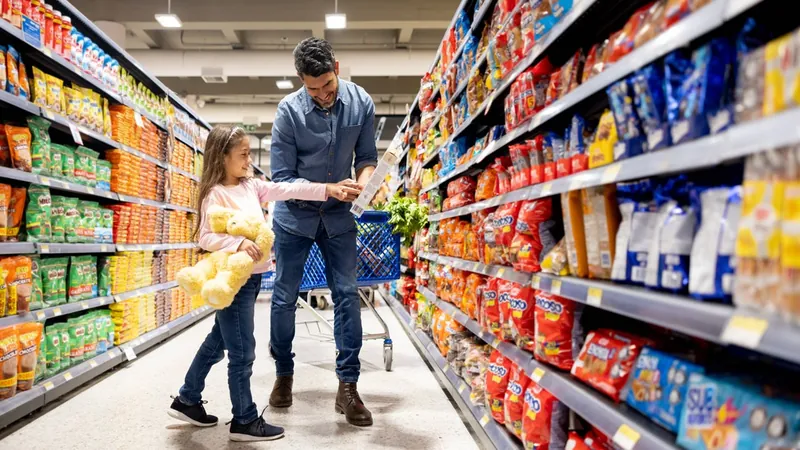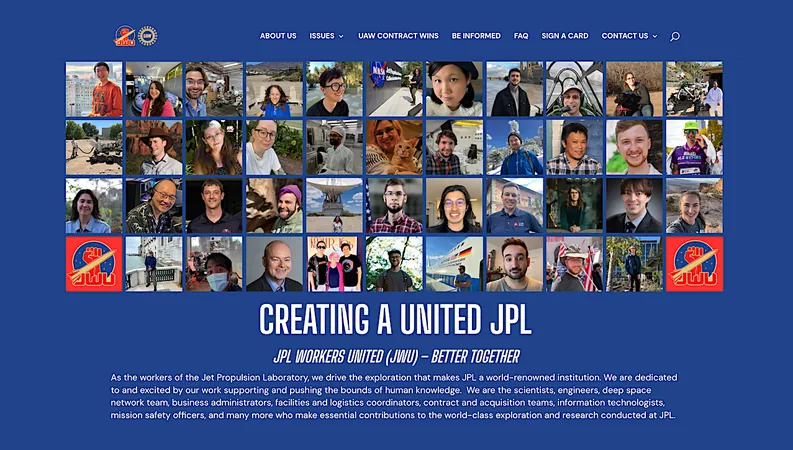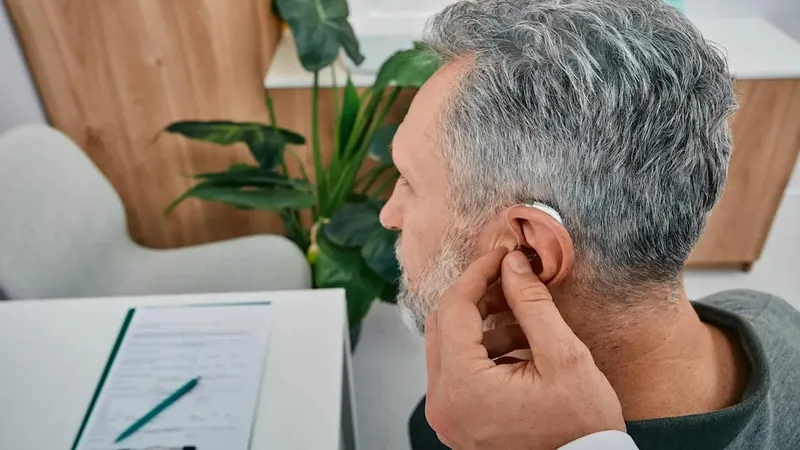
The Hidden Dangers of Chemophobia: Why Fearing Chemicals Can Lead to Major Health Risks
2025-09-01
Author: Wei
Are Chemicals Really So Bad for You?
Have you ever found yourself reaching for organic peaches or swearing off conventional beauty products in favor of so-called ‘clean’ alternatives? If so, you might be falling into a pervasive trend known as chemophobia—the irrational fear of chemicals that’s making its way into everyday life.
What is Chemophobia?
Chemophobia manifests as an aversion to any artificial substances, even those as benign as chemicals in soap or dietary supplements. This fear is not limited to one political ideology; it crosses traditional barriers, impacting both conservative and liberal groups. According to experts, this growing anxiety stems from a misunderstanding between harmful chemical incidents and the vast world of everyday chemicals.
“Chemophobia is a complicated issue that has found its way into our kitchens and bathrooms,” says Andrea Love, an immunologist and founder of Immunologic, a health communication organization. “While initially rooted in left-leaning skepticism about industrial practices, it’s now common on the right, even championed by public figures who promote 'natural' remedies.”
The Misconceptions About Chemicals
At its core, chemophobia leads people to believe that laboratory-made substances are inherently harmful, claiming that anything ‘natural’ must be safe. Love argues that this is a dangerous oversimplification. "Your body can’t tell if a vitamin comes from a lime or a lab; what matters is the chemical structure and the dosage," she points out.
Take the current craze for ‘all-natural’ products as an example: people are opting for beef tallow over vegetable seed oils, blindly believing that the former is better simply because it’s labeled as ‘natural.’”
The Emotional Manipulation of Chemophobia
Chemophobia exploits our emotional responses, making it easy to panic about purported health threats. If a social media influencer says an ingredient is toxic, people rush to eliminate it from their diets, often with dire consequences. Nutritionist Andrea Hardy illustrates this with the recent viral fear of fructose: mothers have dramatically restricted their children’s diets after hearing misinformation about its dangers.
A Chaos of Misinformation
In today’s information-saturated environment, it’s challenging to discern fact from sensationalism. Many individuals seek black-and-white answers, leading to the vilification of certain ingredients, which is often a misinterpretation of data promoted by influencers.
“The terms ‘clean,’ ‘natural,’ and ‘toxin-free’ play into this desire for simplicity, but they often disguise the actual science behind the products,” says Timothy Caulfield, co-founder of ScienceUpFirst, an organization addressing misinformation.”
Marketing Fuels the Fear
Chemophobia is cleverly leveraged by brands marketing their products as ‘chemical-free,’ a claim that is impossible since everything is made of chemicals. This has birthed a slew of ‘clean’ beauty and health products, creating a false dichotomy between what is deemed as risky and safe.
What Really Matters for Public Health?
The irony is that rather than address real health concerns, chemophobia distracts from pressing issues like health equity and access to care. Experts call for substantive regulatory measures rather than focusing on individual ingredients. The public’s perception of health and safety should be informed by science and not misleading marketing.
Everyone—regardless of their political standpoint—needs to recognize that chemophobia can lead to poor health choices, including hesitance to vaccinate or avoid basic health practices. “This is serious, and it has real consequences,” warns Caulfield. “Fearing chemicals recklessly is jeopardizing public health at a critical time.”




 Brasil (PT)
Brasil (PT)
 Canada (EN)
Canada (EN)
 Chile (ES)
Chile (ES)
 Česko (CS)
Česko (CS)
 대한민국 (KO)
대한민국 (KO)
 España (ES)
España (ES)
 France (FR)
France (FR)
 Hong Kong (EN)
Hong Kong (EN)
 Italia (IT)
Italia (IT)
 日本 (JA)
日本 (JA)
 Magyarország (HU)
Magyarország (HU)
 Norge (NO)
Norge (NO)
 Polska (PL)
Polska (PL)
 Schweiz (DE)
Schweiz (DE)
 Singapore (EN)
Singapore (EN)
 Sverige (SV)
Sverige (SV)
 Suomi (FI)
Suomi (FI)
 Türkiye (TR)
Türkiye (TR)
 الإمارات العربية المتحدة (AR)
الإمارات العربية المتحدة (AR)